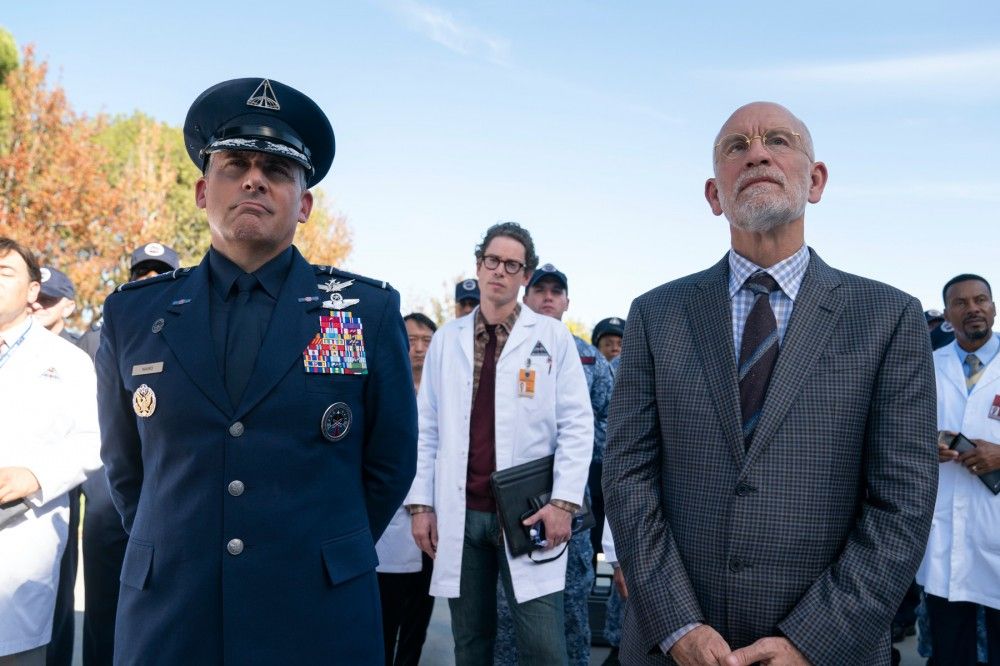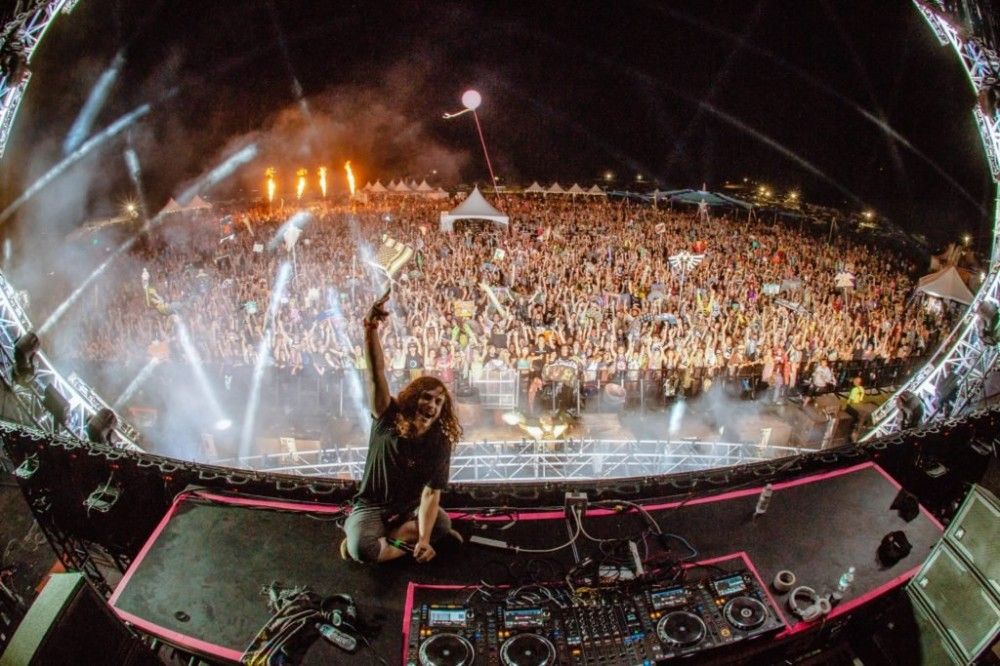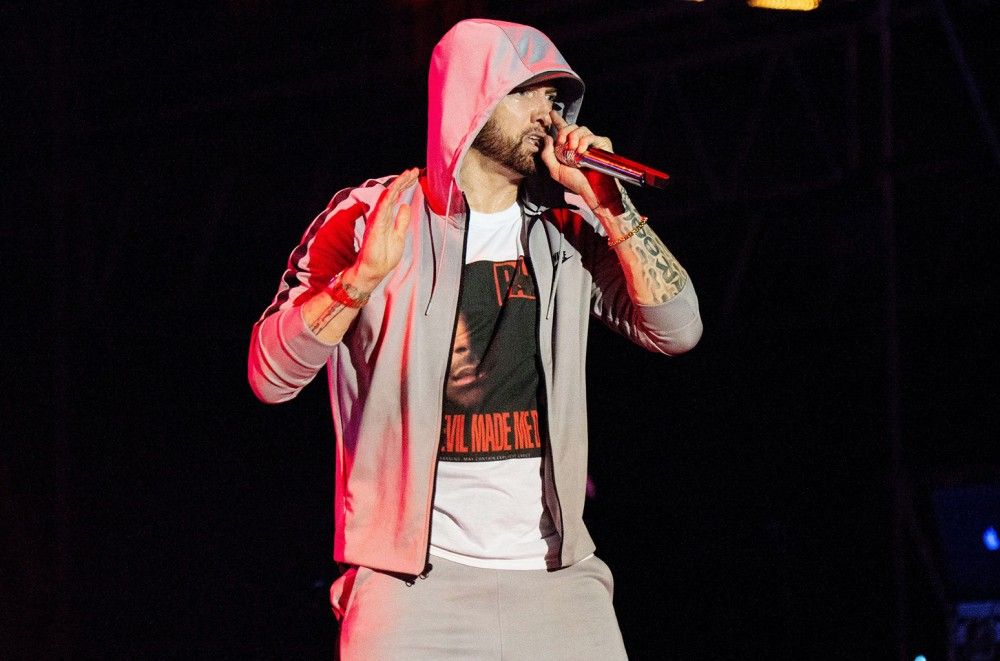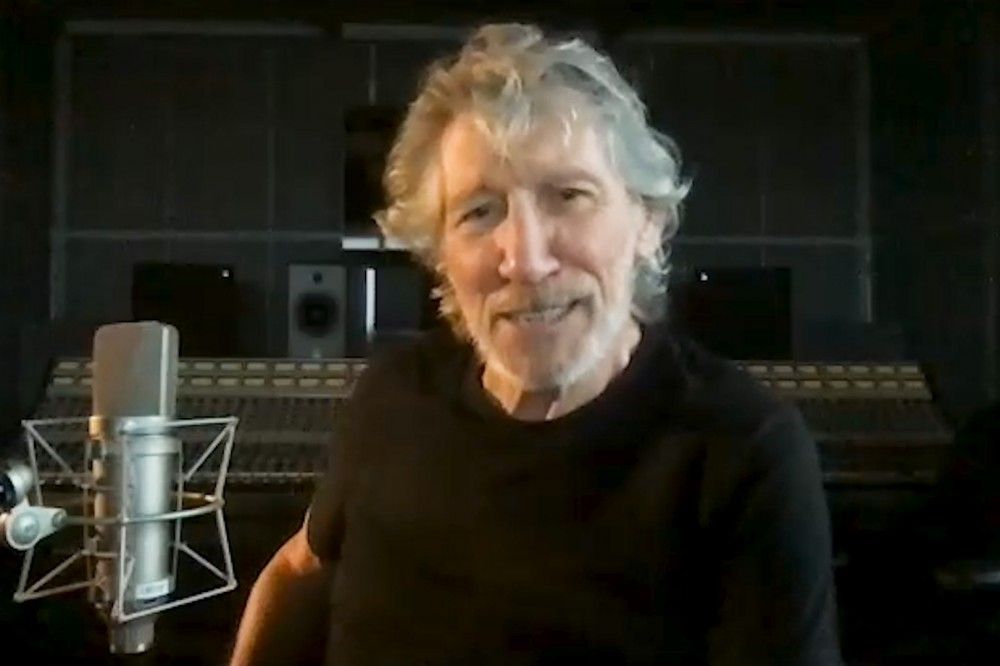
'Space Force' Review: Netflix Comedy Suffers Failure to Launch
Now that it’s one of the most beloved comedies on streaming, across multiple generations, it can be hard to remember that The Office was not well-received when it debuted on NBC in the spring of 2005. It’s not just that the mockumentary format was relatively new to American TV, but that the show’s original conception of Michael Scott was far more malevolent and abrasive than he would become. In particular, the scene in the pilot episode — which was beat-for-beat a remake of the premiere of the British original from Ricky Gervais and Stephen Merchant — where Michael pretends to fire Pam as a prank made him seem like an outright villain, rather than a comic antihero. That abbreted first season featured several standout episodes, but it’s hard to imagine that take on Michael lasting long enough to make the series a pop-cultural touchstone.
Thankfully, Greg Daniels, among the most talented and most influential comedy minds of the last 30 years, is the one who had the unenble task of translating Gervais and Merchant’s work. Daniels wrote some of the best episodes of The Simpsons‘ best years (including “Homer and Apu,” “Lisa’s Wedding,” and “Homer Badman”). He co-created the wonderful, warm, and prescient animated comedy King of the Hill. And he would later co-create the incredible Parks and Recreation. He’s not dumb, is the point, and by the time the second season of The Office began, he figured out that what worked for Gervais as David Brent would not work for as Michael. He toned down the most awful aspects of Michael’s behavior, and tweaked his motivation — where David craves attention, Michael is desperate for a family — enough to make him endearingly awful, rather than off-puttingly awful. (Most of the time, anyway; never forget “Scott’s Tots,” people.) And The Office soon became an institution.
Fifteen years after the American Office debuted, Daniels and Carell have reunited to co-create ’s new comedy Space Force. Carell plays Mark Naird, a four-star general trying to make the best of his assignment to turn the proposed new U.S. military branch into a reality. None of his subordinates want to be there — in part because, inspired by the Air Force’s airmen, they’re all referred to as “spacemen” — and no one anywhere in the chain of command seems to know what they’re doing. It is, on paper, The Office In Space, which should be something these two know how to do well after so many years together, right?
Yet somehow, Daniels and Carell apparently had to learn the original Michael lesson all over again, on a much bigger scale, rendering much of Space Force uncomfortable to watch at best.
Mark Naird isn’t exactly Michael Scott 2.0. He has a wife, Maggie (Lisa Kudrow in a part-time role), a teenage daughter, Erin (Diana Silvers), and is more aggressive and confident than Michael ever was. He’s a plausibly orthodox military man; when Maggie complains that he’s too rigid in his thinking, he insists, “I can be flexible if I’m ordered to be.” But the way Naird stalks through most of the episodes as a defiantly ignorant, periodically bigoted asshole feels unfortunately very reminiscent of that first Office season when Michael was unbearable. And, worse, where Michael’s power was extremely limited, Naird is in charge of an entire service branch, with billions of dollars subject to his erratic whims. It won’t be long into viewing before your level of exasperated despair will match that of Space Force chief scientist Adrian Mallory (John Malkovich), whose every good idea keeps being wrecked by this imbecile who not only won’t listen to reason, but doesn’t seem to believe in the concept.
Naird’s obstinate, destructive behavior would make Space Force a difficult binge even if all the other elements were perfectly balanced. But too much of it keeps finding new ways to waste the incredible amount of talent and money on display here.
The regular and recurring cast includes Ben Schwartz (as Space Force’s douche-tastic social media expert), Jimmy O. Yang (as a scientist whose Asian ancestry gives license for various characters to say racist things), Tawny Newsome (as Naird’s personal pilot), Don Lake (as Naird’s ineffectual aide), Jessica St. Clair (a civilian contractor heading up construction on Space Force’s secret base), the late Fred Willard (as Naird’s senile father), and, as the other joint chiefs of staff, Noah Emmerich, Diedrich Bader, Jane Lynch, and Patrick Warburton. It’s a remarkable collection of performers, but largely used in the broadest and most superficial way possible.
And the scale of the thing makes The Office look like a TikTok video in comparison. There are special effects galore — much of the second episode involves a CGI chimpstronaut attempting to repair a damaged satellite, while some characters eventually wind up on the moon(*) — and the sprawling Space Force campus (hidden behind a Colorado mountain) is an impressive piece of production design. But as HBO’s own space comedy Avenue 5 showed, seeing all that money onscreen is rarely funny in and of itself. The stylistic touchstone seems to be in the farcical vibe of Dr. Strangelove, but everything just winds up feeling frantic and labored. And none of the many jokes about the current administration — POTUS is never referenced by name, but is depicted as impulsive, immature, and easily swayed by the Russians; Schwartz’s character has a name that sounds a lot like Anthony Scaramucci’s; and there’s an unintentionally timely joke about the Post Office ceasing to exist — really land, in part because their take on the subject rarely gets any more complex than, “Isn’t this all a bit silly?”
(*) Truth is goofier than fiction: A big deal is made of something that happens to the flag Neil Armstrong and Buzz Aldrin planted at the Sea of Tranquility, which ignores the fact that Neil and Buzz inadvertently placed it too close to their ship, whose engine knocked over Old Glory when they flew back into lunar orbit. It’s been lying in the lunar dust for over 50 years.
Most of the early episodes climax with Naird briefly showing a degree of insight completely at odds with his behavior over the preceding 25 minutes. These scenes are about as convincing as all those heartwarming Modern Family monologues wrapping up episodes about how each character despises their spouse. But they at least suggest that Daniels and Carell (who back in the day wrote two fantastic Office episodes, “Casino Night” and “Survivor Man”) realize that there’s only so far they can push Mark’s behavior(*).
(*) Michael was an inconsistently-written character from episode to episode, but his occasional moments of competence, or even genuine wisdom, tended to feel more of a piece with the rest than when Mark suddenly gives a speech suggesting hidden depths. There are also a few scenes where he sings when he’s feeling vulnerable and no one is watching, which seem more like Carell trying to recreate the “Afternoon Delight” gag from Anchorman than something Mark would actually do based on how he’s depicted the rest of the time.
In the season’s second half, the creative team begins dialing Mark’s behavior waaaaay back to more human, even empathetic, levels, and also focusing a bit more on the supporting characters. (Newsome and Yang develop an appealing friendship, with the promise of more, and Malkovich gets to do things other than roll his eyes at his co-star.) There’s still a lot of tonal whiplash, not just from Mark going from obstructionist villain to well-meaning bumbler, but from the show attempting to be a spoof in one scene and genuinely inspiring, Apollo 13-esque Americana in the next. Space Force doesn’t get a whole lot funnier in that late turn, but it is by far more pleasant to watch, and perhaps suggests a second-season leap is possible, comparable to what The Office did beginning with “The Dundies.”
How did this happen, though? How did so much talent and money go to such waste? In the show’s press notes, Carell explains that the concept of the series originated not with him or Daniels, but with a group of Netflix executives: “There was no show, there was no idea aside from the title. Netflix asked, ‘Do you want to do a show called Space Force?’ And I pretty much immediately said, ‘Well, yeah, sure. That sounds great.” And then I called Greg, and I said, ‘Hey, you want to do a show called Space Force?’ And he said, ‘Yeah, that sounds good. Let’s do it.’ And it was really based on nothing, except this name that made everybody laugh.” It’s not impossible for a great TV show to be made out of an executive’s very thin brainstorm — Lost only existed because ABC boss Lloyd Braun wanted a scripted cross between Survivor and Cast Away — but in this case, it feels like nobody was ever able to go much deeper than that title. And even that might have been OK if Carell and Daniels had remembered the rough genesis of Michael Scott from the first time they worked together.
Space Force Season One premieres May 29th on Netflix. I’ve seen all 10 episodes.



